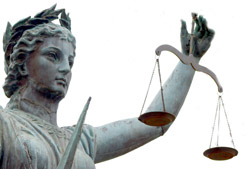 So you want to know the different legal aspects of promoting or selling your DJ mix? There are some straight answers to the legal landscape, but as you will discover, the common practices may not always follow the same set of rules. As you read this article, keep in mind your personal situation by answering the following questions for yourself:
So you want to know the different legal aspects of promoting or selling your DJ mix? There are some straight answers to the legal landscape, but as you will discover, the common practices may not always follow the same set of rules. As you read this article, keep in mind your personal situation by answering the following questions for yourself:
- What kind of music does your DJ mix contain? Is the music mainstream and popular? Is it underground or produced by your friends?
- Where are you planning to distribute your mix? To your friends and fans online, in music stores?
- How big will your audience realistically be?
- Are you planning on selling your mix or sharing it for free?
Keep these answers in mind while you read. Lets get started!
Legal Use of Music in DJ Mixes
The “By the Book” Legal Landscape
If you use someone else’s material in a DJ mix that you distribute, you should gain legal permission to use that material. This means that you may be required to simply gain permission, or you may be looking at paying royalties for the use of the content. DJ mixes fall into a grey area because they are most often used for promotion, rarely sold, and normally modify the content contained within the mix.
These legal obligations can filter down to the locations that DJs play their music. Clubs can pay annual fees to the two artist organizations that cover public performance rights. These rights give the clubs the rights to cover their DJs that spin at their venues.
If you read this and think “Well this seems like a guideline that is rarely, if ever followed by DJs” then you are correct.
Likely this doesn’t mean the next mix that you record and upload online needs to be legally cleared. In the next section we will cover the real world legal practices as they apply to DJ mixes.
The “Reality” of Copyright and Legal Issues with DJ Mixes
The reality of the songs within DJ mixes are that the songs are most often modified in some way, they are contained within a long track, and the mixes are mostly shared for enjoyment. As a record label or artist it is often seen as a positive thing to have your music mixed into a DJ mix. This means you are gaining free promotion for your music.
The vast majority of DJ mixes are shared online and are produced by smaller time DJs who have mixed music. This means that even if the record companies wanted the mixes removed it would be a useless effort. These companies would have an tough time trying to sift through hours of music to find their music and then have the mix removed. Most of these mixes would be hitting very small audiences which makes it even less important to have removed.
The real situation with the DJ industry is that when creating and sharing a mix, you will likely never encounter legal issues when doing so. Only in some special cases would you ever need to clear the music that you mix as a DJ. Finding out if you fall into this situation needs to be assessed on a case by case basis. Use the following to see if your mix might fall into an area that needs to be legally covered:
The Music You Mix
The more mainstream or popular your music, the more likely you would be to face any sort of issue. Likely this will have to be coupled with one of the following items to have it matter at all.
The Audience You Reach
Are you reaching 5, 500, or 50000 people? The more people you reach, the more possibility you may find trouble. The flipside is that the more people that hear your mix, the more free promotion the record companies get!
Sharing vs Selling
This is the biggest point that you should consider. Basically sharing your mix for free will likely never see any legal issues. Selling your DJ mix without clearing all copyrights can lead to legal issues.
Likely Consequences
If you are sharing a DJ mix for free, likely the only issue you may ever run into is that your mix might be removed. This has become an issue with Soundcloud, and is a reason that many people look elsewhere when uploading their DJ mixes. This is because the music is modified through mixing and the audience is generally smaller.
If you are selling your DJ mix without the proper legal clearance then you may face serious issues. We won’t go into the details. We advise only to clear yourself when selling your mixes. You worked hard on the mix and the artists worked hard on the music so everyone should win, not just you.
Sharing Your DJ Mixes Online
Issues Sharing Your Mixes
As we clarified above, if you run into an issue while sharing your DJ mix, it will likely result in only a removal. This isn’t a huge issue, but more of an annoyance. Your mix will usually only be removed if the copyright holder flags your mix and requests its removal.
If you want to prevent this from happening you can take precautions by making it harder for someone to find out what tracks are contained within the mix. This can mean disabling any sort of automatic track identification or storing your tracklists on a separate page from your mix. Pro tip – try uploading a mix and then linking to the tracklist on your blog.
Where to Share Your DJ Mixes
If you want to share your mixes online without worry of your mix being removed then we suggest you read our post on the best sites to share your DJ mixes.
Selling DJ Mixes
The reality of DJ mixes is that they are likely not going to be big money makers. It takes a significant following to be able to justify the investment or time involved in selling a DJ mix. There aren’t large sums of money left over for the DJs after all the royalties are payed. This doesn’t mean its impossible to sell your mix though! Lets cover a couple channels:
Selling Professional Mix CD’s
Successful DJs who have the skills, fan base, recognition, and needed promotional avenues to promote themselves may end up releasing a mix CD for retail sale. If you wish to produce and sell a physical mix CD then you are in a situation where the legality is very important to keep in mind. When producing a CD for sale, it is important that the record label or individual producing the mix obtain legal permission from the copyright holders to include their tracks in the mix.
There have been many record stores in the past that have been prosecuted for copyright violation for selling unauthorized mixtapes. This means that getting your mix CD into stores will require you jump through the legal hurdles.
Selling DJ Mixes Online
While it is easy to share your DJ mixes online, it is an entirely different story when you look at selling for a profit. There would be many illegal ways to sell your music online, we aren’t going to cover them here.
![]() What we are going to cover is Beatport’s new service called Beatport Mixes. This service allows DJs to share and sell DJ mixes that they have created. This is a great thing for those DJs that love to create mixes and have a solid following.
What we are going to cover is Beatport’s new service called Beatport Mixes. This service allows DJs to share and sell DJ mixes that they have created. This is a great thing for those DJs that love to create mixes and have a solid following.
The service allows DJs to share their mixes with one catch. The music contained in the mix needs to be exclusively purchased from Beatport. This requirement helps Beatport pay the artists for the use of their music. The pricing breakdown shows how Beatport is using the service to help the labels and artists gain some cash from their content.
The mixes are sold for $9.99. The cost breakdown is as follows:
- The DJ gets 10%
- The labels get 60%
- The performing rights organizations get 30%
This means that per mix sold, as the DJ you are looking at .99 cents profit per mix. You’re going to have to be selling quite a few mixes to be paying the bills!
Start recording your mixes today by reading our mix recording information.




Leave a Reply
You must be logged in to post a comment.